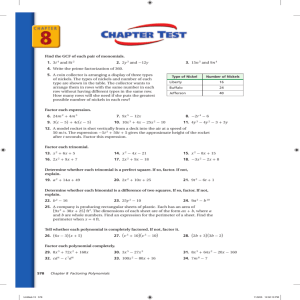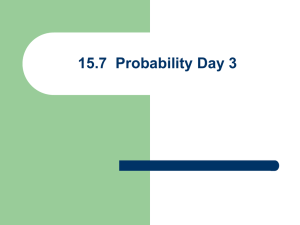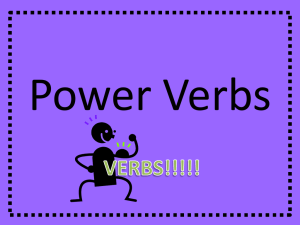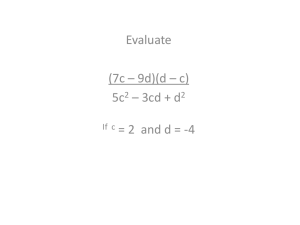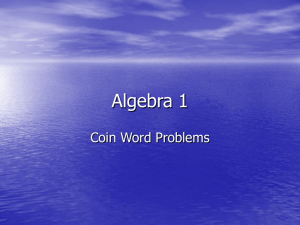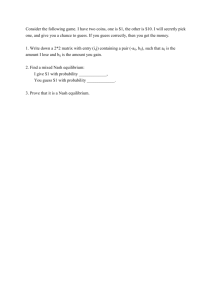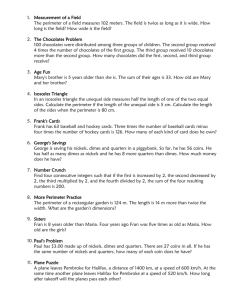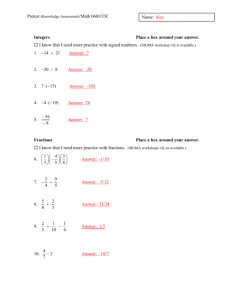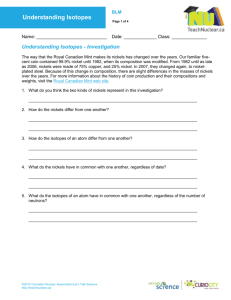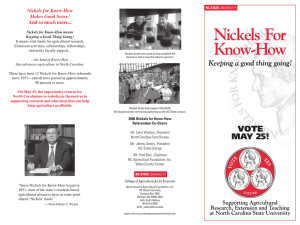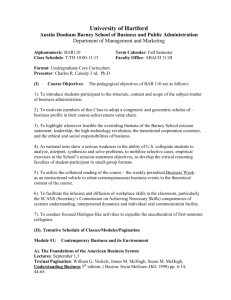Guess and Check Notes
advertisement
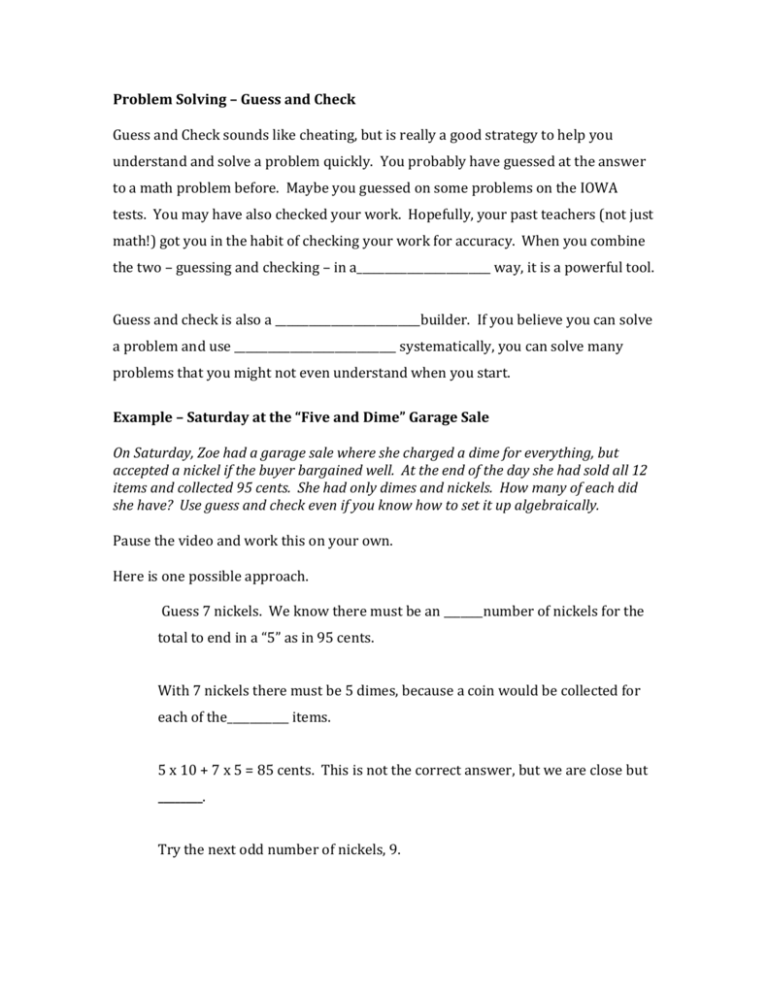
Problem Solving – Guess and Check Guess and Check sounds like cheating, but is really a good strategy to help you understand and solve a problem quickly. You probably have guessed at the answer to a math problem before. Maybe you guessed on some problems on the IOWA tests. You may have also checked your work. Hopefully, your past teachers (not just math!) got you in the habit of checking your work for accuracy. When you combine the two – guessing and checking – in a________________________ way, it is a powerful tool. Guess and check is also a __________________________builder. If you believe you can solve a problem and use _____________________________ systematically, you can solve many problems that you might not even understand when you start. Example – Saturday at the “Five and Dime” Garage Sale On Saturday, Zoe had a garage sale where she charged a dime for everything, but accepted a nickel if the buyer bargained well. At the end of the day she had sold all 12 items and collected 95 cents. She had only dimes and nickels. How many of each did she have? Use guess and check even if you know how to set it up algebraically. Pause the video and work this on your own. Here is one possible approach. Guess 7 nickels. We know there must be an _______number of nickels for the total to end in a “5” as in 95 cents. With 7 nickels there must be 5 dimes, because a coin would be collected for each of the___________ items. 5 x 10 + 7 x 5 = 85 cents. This is not the correct answer, but we are close but ________. Try the next odd number of nickels, 9. 9 x 5 + 3 x 10 = 75 cents. This is not the correct answer AND it is going in the______________ direction because the answer is too ______________ Try the next odd number of nickels going the other direction – 5 nickels. 5 x 5 + 7 x 10 = 95 cents. We know that she has 5 nickels and 7 dimes. Key points to remember in working Guess and Check are as follows: 1. _______________Guessing. Don’t hesitate. As you guess and work through the guess, you will learn more about the problem. 2. Keep your work ________________________. Use some sort of chart to keep track of values tried and the result. 3. Be ready to start ______________. 4. _____________________ the range of your answer by guessing values that are above and below the desired value. Example Problem - Ducks and Cows Farmer Renkins has a farm where she raises only ducks and cows. She is not big on details. She remembers that she has 54 animals and that they have 122 feet all together. How many ducks and how many cows does Farmer Renkins have? Here is one possible way to organize your data. Use it if you like or try your own. Ducks Duck Feet Cows Cow Feet Total Feet Total Animals Check
